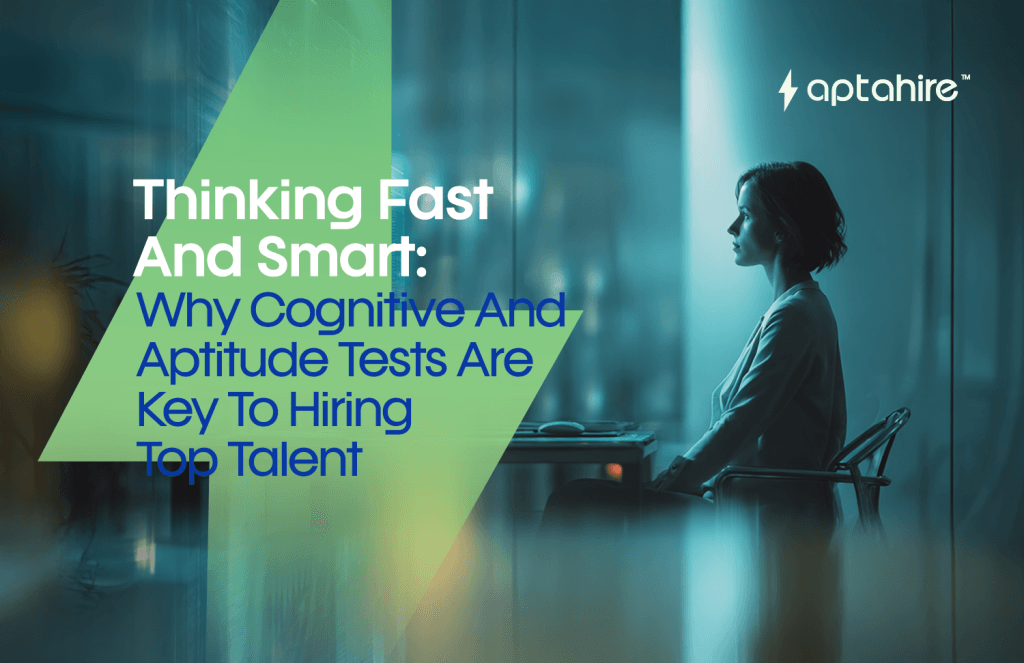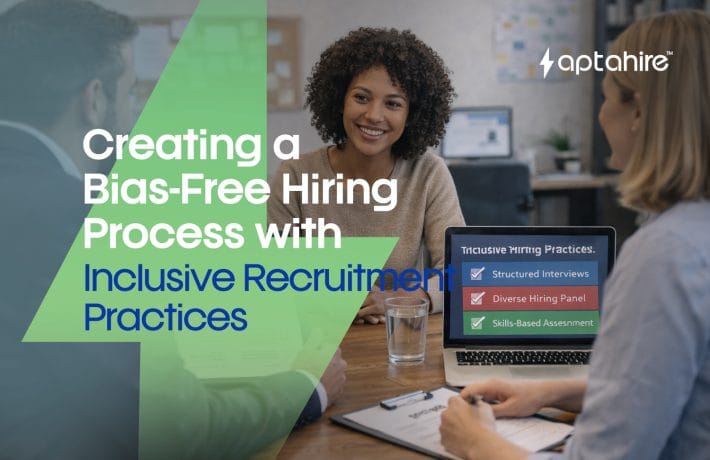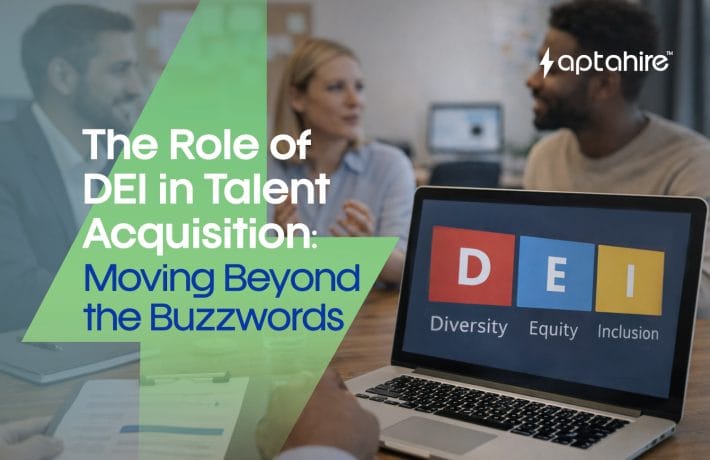Thinking Fast and Smart: Why Cognitive and Aptitude Tests Are Key to Hiring Top Talent

Hiring has always been a bit like treasure hunting. You scan through piles of resumes, sit through endless interviews, and hope that somewhere in there is the “X” that marks the spot, the ideal candidate. But let’s be honest: relying on gut instinct or polished interview answers often feels like flipping a coin.
This is where cognitive and aptitude tests enter the scene, not as buzzwords, but as reliable compasses. They don’t just look at what a candidate knows (like degrees and work history); they measure how a candidate thinks. And in today’s workplace, where challenges evolve faster than your favorite app updates, that difference is everything.
The Real Superpower: Thinking on Your Feet
Imagine you’re faced with a tricky work situation, maybe a client suddenly changes requirements, or a project deadline shifts out of nowhere. The best employees aren’t the ones who panic. They’re the ones who quickly analyze, adapt, and make smart decisions.
Cognitive tests assess this ability by focusing on things like:
- Logical reasoning: Can they connect dots under pressure?
- Numerical ability: Can they crunch data without breaking a sweat?
- Verbal reasoning: Can they understand and communicate complex ideas clearly?
These aren’t just abstract skills. They’re the very foundation of problem-solving in real-world workplaces.
Aptitude: More Than Just IQ
When we say aptitude tests, we’re not just talking about measuring intelligence. We’re talking about potential; the raw ability to grow, adapt, and excel in new situations.
Think of it like this: hiring someone with strong aptitude is like planting a seed in fertile soil. With the right environment, that seed will grow into something extraordinary. Aptitude tests reveal whether a candidate has that fertile ground, even if their résumé doesn’t scream “rockstar” yet.
Why Companies Swear by Them
Top organizations don’t include cognitive and aptitude tests just for fun, they use them because they work. Here’s why:
- Leveling the Playing Field
Interviews can be influenced by biases, how someone looks, speaks, or carries themselves. Tests give every candidate the same set of challenges, making the process fairer.
- Predicting Real Performance
Studies consistently show that cognitive and aptitude scores are some of the best predictors of job performance. If someone can think fast and adapt in a test, chances are they’ll do the same at work.
- Spotting Hidden Gems
Sometimes the best candidate doesn’t have the fanciest degree or biggest company on their CV. Aptitude tests reveal raw talent that might otherwise go unnoticed.
Beyond Numbers: Building Teams That Thrive
Here’s the kicker, cognitive and aptitude tests aren’t about turning hiring into a robotic, numbers-only process. Instead, they’re tools to complement human judgment.
Think of it as baking a cake:
- The resume is the flour (necessary base).
- The interview is the icing (adds flavor).
- The cognitive and aptitude test? That’s the yeast, it helps everything rise.
Without it, you might end up with something flat.
A Win-Win for Everyone
For recruiters, these tests reduce bad hires, save time, and ensure smarter decisions. For candidates, they’re a chance to prove their skills beyond what’s written on paper. A candidate who’s great at solving problems but has an unconventional background suddenly gets the chance to shine.
The Future of Hiring: Smarter, Faster, Fairer
In a world where industries are being reshaped by AI, automation, and shifting economies, the ability to think fast and smart is more valuable than ever. That’s why cognitive and aptitude tests aren’t just “nice to have”; they’re becoming the gold standard of modern hiring.
Because in the end, companies don’t just need employees who know things. They need employees who can figure things out; quickly, creatively, and effectively.
Final Thought
In today’s competitive hiring space, businesses can no longer afford to rely on résumés and gut feelings alone. Skills can be taught, tools can be mastered, and experience can be gained, but the ability to think critically, solve problems, and adapt under pressure is far harder to cultivate. This is exactly why cognitive and aptitude tests have become a cornerstone of modern recruitment.
They don’t just measure knowledge, they measure how a candidate thinks, reacts, and evolves in real time. By integrating these assessments into your hiring process, you’re not only identifying who can do the job today, but also who can grow with your organization tomorrow.
For recruiters, this means fewer hiring mistakes, reduced turnover, and stronger teams. For candidates, it’s an opportunity to showcase their real potential, especially for those who might not fit into traditional molds of qualifications and past experience.
Ultimately, building a high-performing workforce isn’t about finding people who check all the boxes, it’s about finding people who can create new boxes when needed. Cognitive and aptitude tests unlock this vision, ensuring your hiring strategy isn’t just fast, but also smart, fair, and future-ready.
FAQs
1. What are cognitive and aptitude tests in hiring?
Cognitive and aptitude tests are assessments that measure a candidate’s problem-solving ability, logical reasoning, communication, and adaptability. They help recruiters evaluate how someone thinks and reacts, rather than just what they know.
2. Why are cognitive tests important in recruitment?
They are strong predictors of job performance because they show how quickly and effectively a candidate can analyze information, make decisions, and solve real-world challenges.
3. How do aptitude tests differ from traditional interviews?
While interviews focus on experience and personality, aptitude tests assess raw ability and potential. They provide an unbiased, standardized way to compare candidates.
4. What skills do cognitive and aptitude tests usually measure?
These tests typically measure logical reasoning, verbal and numerical ability, abstract thinking, memory, and problem-solving skills.
5. Do cognitive tests favor only highly educated candidates?
Not at all. Cognitive and aptitude tests are designed to measure thinking ability, not academic knowledge. Even candidates without top-tier degrees can excel if they have strong reasoning and problem-solving skills.
6. Are aptitude tests fair to all candidates?
Yes, they create a level playing field by giving every candidate the same set of challenges, reducing the impact of unconscious bias that often creeps into interviews.
7. Can candidates prepare for cognitive and aptitude tests?
Yes, practice can help improve familiarity with the test format and boost performance. However, the core skills being measured, like reasoning and adaptability, are less about memorization and more about natural problem-solving ability.
8. How do these tests benefit employers?
Employers gain deeper insights into a candidate’s potential, reduce hiring risks, improve team performance, and ultimately save time and costs associated with wrong hires.
9. Are cognitive and aptitude tests used across industries?
Absolutely. From IT and healthcare to finance, retail, and creative industries, these tests are widely used because problem-solving and adaptability are universal workplace skills.
10. Do aptitude tests replace interviews?
No. They complement interviews and résumés. Think of them as one piece of the puzzle, helping recruiters make more well-rounded, data-driven hiring decisions.



